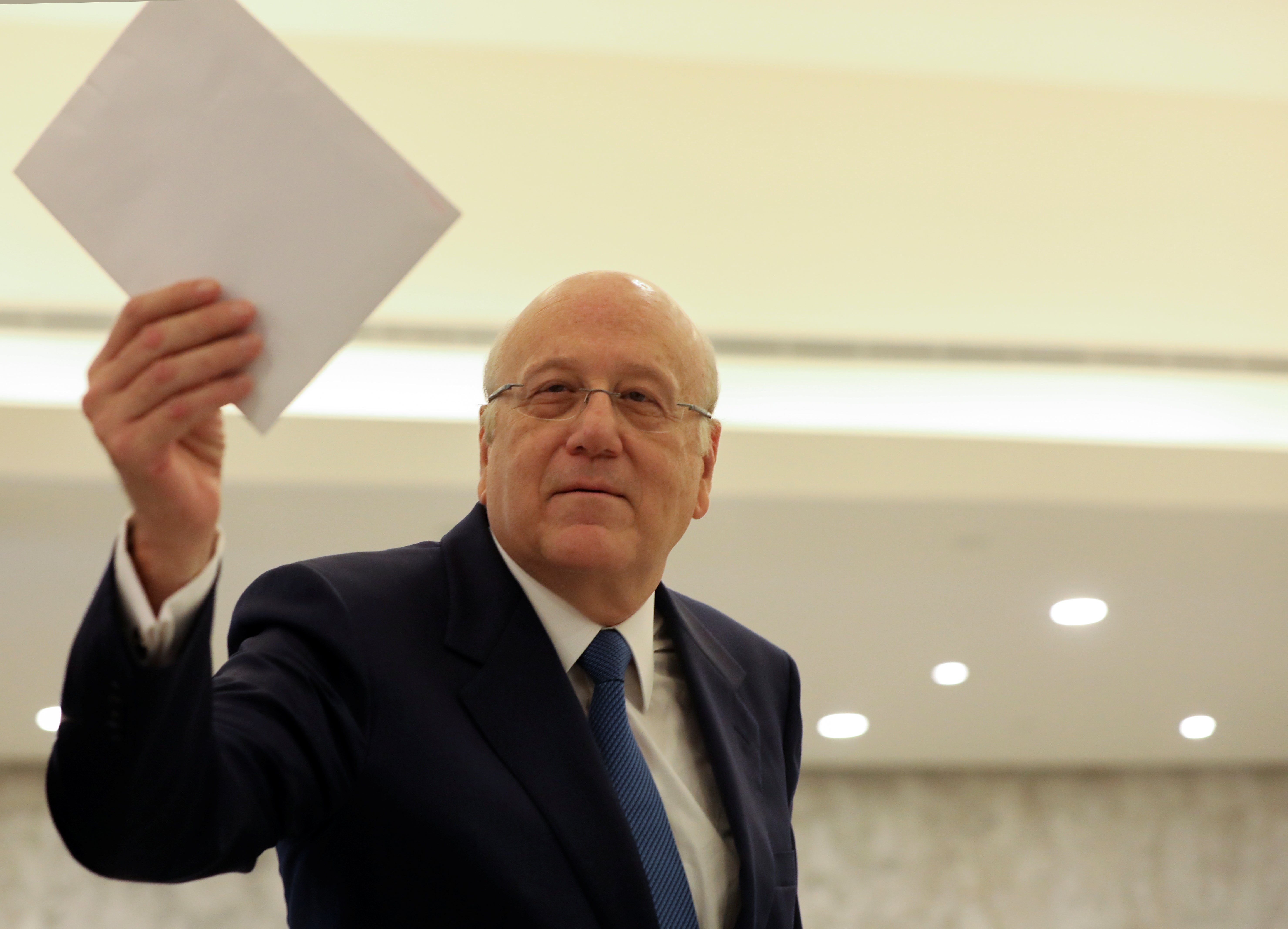Lebanon forms new government, breaking year-long deadlock
New PM Najib Mikati is one of the richest men in a country in the midst of financial chaos

Your support helps us to tell the story
From reproductive rights to climate change to Big Tech, The Independent is on the ground when the story is developing. Whether it's investigating the financials of Elon Musk's pro-Trump PAC or producing our latest documentary, 'The A Word', which shines a light on the American women fighting for reproductive rights, we know how important it is to parse out the facts from the messaging.
At such a critical moment in US history, we need reporters on the ground. Your donation allows us to keep sending journalists to speak to both sides of the story.
The Independent is trusted by Americans across the entire political spectrum. And unlike many other quality news outlets, we choose not to lock Americans out of our reporting and analysis with paywalls. We believe quality journalism should be available to everyone, paid for by those who can afford it.
Your support makes all the difference.Lebanon’s new prime minister Najib Mikati and president Michel Aoun have signed a decree forming a new government, breaking a 13-month deadlock that has seen the country slide deeper into financial chaos and poverty.
Mr Mikati made an emotional pledge to do everything in his power to stop the country from descending further into economic collapse, and urged fractious politicians to work together.
The new PM, who is one of the richest men in Lebanon, held back tears at the televised address to the nation on Friday as he spoke of Lebanese mothers who cannot feed their children and students whose parents can no longer afford to send them to school.
Speaking at the presidential palace, he said: “The situation is difficult but not impossible to deal with if we cooperate. We have to put our hands together.”
He pledged to help Lebanon through “exceptional circumstances” as its economy continues to crumble. The Lebanese pound has lost 90 per cent of its value since October 2019, driving hyperinflation and plunging more than half of the population into poverty.
The United Nations recently estimated that almost three-quarters of the country’s population live in poverty, amid crippling fuel and medicine shortages that have threatened to shut down hospitals, bakeries and the internet.
The announcement on Friday means the country has a fully empowered government for the first time in over a year, since the catastrophic 4 August 2020 explosion at Beirut’s port that forced the resignation of the then prime minister Hassan Diab’s government.
Mr Mikati, a billionaire businessman from the northern city of Tripoli, served as Lebanon’s prime minister in 2005 and between 2011 and 2013. He is widely considered to be a member of the political class that has been blamed for the corruption and mismanagement that has led to the country’s current crisis.
Some of his fellow ministers are experts in their field, including Firas Abiad, director-general of the public hospital that is leading the coronavirus fight, who has won praise for his transparency in handling the pandemic.
Youssef Khalil, a senior central bank official and aide to governor Riad Salameh, was named finance minister.
Meanwhile the Shia Islamist movement Hezbollah, a political ally of Aoun that is designated a terrorist group by the United States, named two of the 24 ministers.
The international community has refused to help Lebanon financially before reforms are implemented to fight widespread corruption and mismanagement.
It has repeatedly urged the country to restart negotiations with the International Monetary Fund and to hold elections in May 2022.
Join our commenting forum
Join thought-provoking conversations, follow other Independent readers and see their replies
Comments